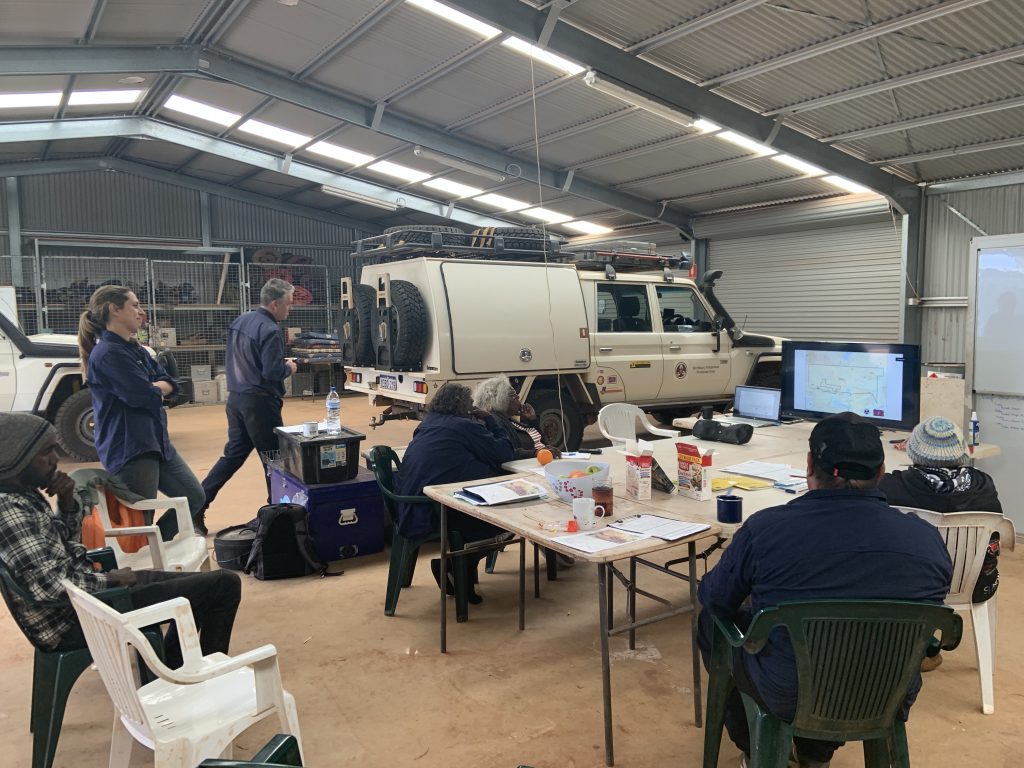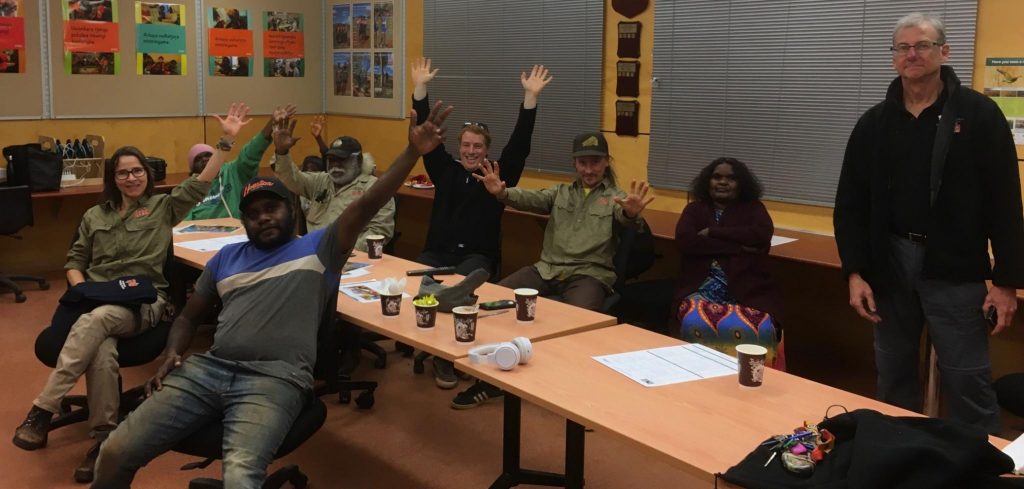Annual Review stories Community stories: 20 October 2021
Ngaanyatjarra Country
Indigenous Rangers play a critical role in protecting the environment and managing country. In most places where they operate, they manage threatened species, manage the land using cool burns and fire and control feral animals – alongside developing tourism and cultural heritage activities.
The Indigenous Desert Alliance (IDA) runs an annual conference to bring together ranger groups from across the remote Southern Deserts to build Indigenous-led networks, leadership confidence and capability, increase skills relevant to Ranger groups and build advocacy for Indigenous land management. These rangers collectively manage an area approximately the size of Victoria.
The Forum is a highly regarded desert event that has been held annually since 2017, and focuses on maximising networking opportunities with an interactive program including workshops, tours, engaging conference sessions and stalls. It’s an important opportunity for Indigenous desert rangers to come together and build their alliance for personal and professional outcomes, to share their successes, challenges and opportunities, and to spend time with valued partners, stakeholders and experts.
Due to travel restrictions, the 2020 Southern Desert Rangers Forum and their Annual Conference were held online. The $25,000 grant IDA received from FRRR’s Strengthening Rural Communities program, funded by the Baxter Charitable Foundation, was originally intended to assist with the transport costs to bring five emergent remote ranger groups to Warakurna for the Forum. Instead, IDA used the funds to set up dedicated studios in Perth to run the events, with full technical support. IDA also purchased video conferencing equipment to enable the remote teams to participate in the events.
Despite meeting over Zoom, there was active participation and over 150 people in attendance over the three days the program ran, including 19 Australian Desert Ranger Groups from across the Southern Deserts, as well as rangers from the Misipawistik Cree Nations in Canada. There were presentations from Birriliburu Rangers, Rangers from APY Lands in SA, and Maralinga Tjarutja Rangers from Oak Valley.
Sessions included practical training components for rangers using GIS mapping software; co-design of education resources for weed eradication in the desert (developed in both Aboriginal language and in English); a presentation from the Threatened Species Commissioner; as well as open discussions around traditional knowledge of burning in the desert and implications for bushfires in populous coastal regions. Importantly, the highly-valued ‘Ranger to Ranger’ sessions still ran, where rangers develop and inform the priorities of the Indigenous Desert Alliance.
Emmanual Hondras, IDA Coordinator, said that there were unexpected outcomes resulting from the online delivery mode, including greater engagement between participants which he attributed to their increased comfort from being able to remain On Country.
“The IDA pivoted to ensure that our members in regional and remote Australia were still connected despite the scourge of COVID-19, providing the chance for leadership confidence and capability to grow through a new means, the opportunity for regional and remote priorities to be discussed and progressed, and the opportunity for these to be advocated to key political and bureaucratic leaders.
“Despite many people thinking it couldn’t be done, we managed to ‘keep the desert connected’ during a pandemic and during travel restrictions. It was a landmark event for Indigenous desert rangers in regional and remote communities.”
Emmanuel Hondras, IDA Coordinator
IDA used the learnings from this event to inform their Annual Conference, which was also run via video conference and attracted over 200 attendees. Thirty-one groups attended the Conference held in November – an astounding result, given that this was the first attempt at full forums / conferences via these means.
The $25,000 grant IDA received from FRRR’s Strengthening Rural Communities program, funded by the Baxter Charitable Foundation, was originally going to be used to assist with the transport costs to bring five emergent remote ranger groups to Warakurna for the forum. Instead, IDA set up dedicated studios in Perth to run the events, with full technical support. This is where the majority of total costs ended up falling, along with venue hire and catering. IDA also purchased video conferencing equipment to enable the remote teams to participate in the events.
IDA has since helped other not-for-profit organisations in the area, using their new-found knowledge and skills to assist with these organisations with their online events, which in itself is a great capacity building outcome.



